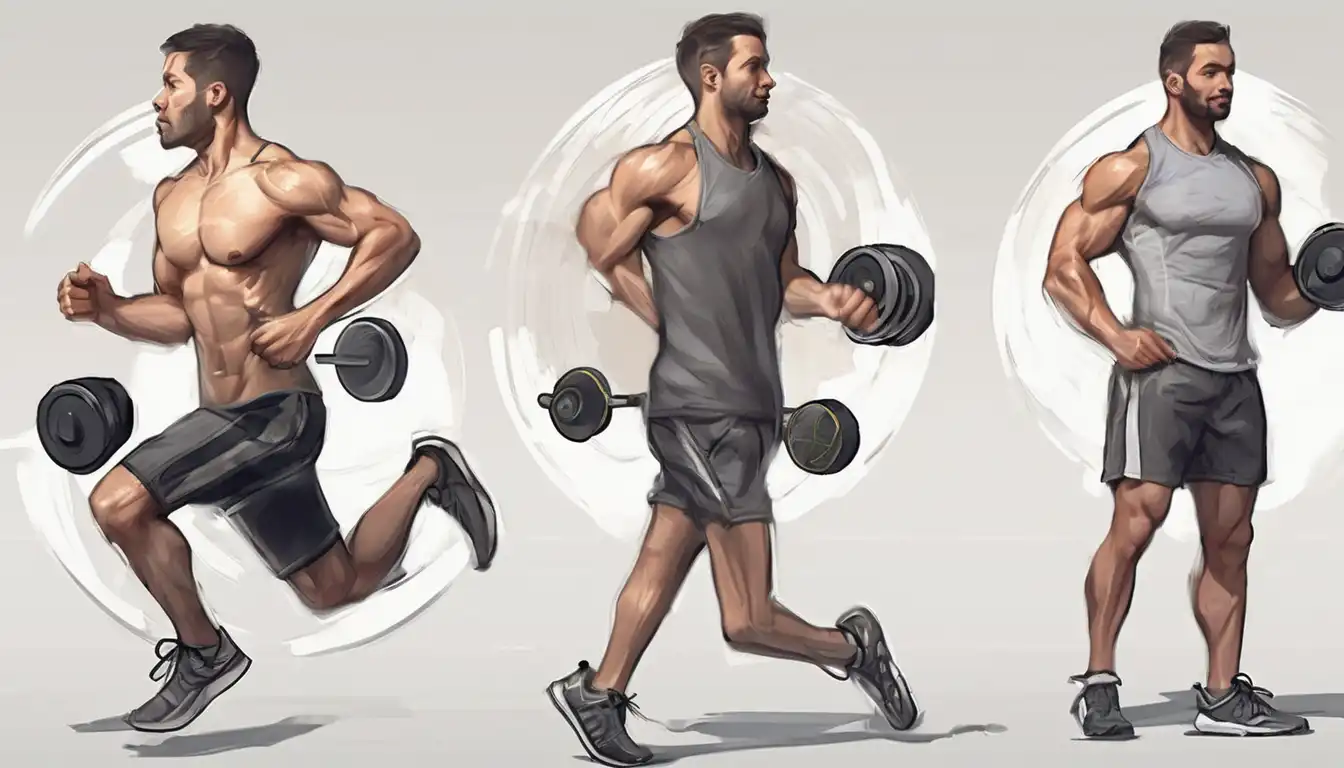Getting Started: Your Path to Fitness Success
Embarking on a fitness journey can feel overwhelming, but with the right approach, anyone can build a sustainable routine that delivers real results. Whether you're looking to lose weight, build strength, or simply improve your overall health, this comprehensive guide will walk you through every step of creating an effective fitness plan tailored to your needs and lifestyle.
Assess Your Current Fitness Level
Before diving into any workout program, it's crucial to understand your starting point. Take time to evaluate your current fitness level by considering factors like cardiovascular endurance, strength, flexibility, and body composition. This baseline assessment will help you set realistic goals and track your progress effectively. Remember that everyone starts somewhere, and honest self-assessment is the foundation of success.
Setting SMART Fitness Goals
Effective goal-setting is the cornerstone of any successful fitness routine. Use the SMART framework to create goals that are Specific, Measurable, Achievable, Relevant, and Time-bound. Instead of vague aspirations like "get fit," aim for concrete objectives such as "lose 10 pounds in 3 months" or "run a 5K in under 30 minutes within 8 weeks." Breaking larger goals into smaller milestones will keep you motivated and focused throughout your journey.
Choosing the Right Exercise Program
Selecting activities you enjoy is key to maintaining long-term consistency. Consider incorporating a mix of cardiovascular exercise, strength training, and flexibility work for balanced fitness development. Popular beginner-friendly options include walking, swimming, bodyweight exercises, and yoga. Start with 2-3 sessions per week and gradually increase frequency and intensity as your fitness improves.
Cardiovascular Exercise Basics
Cardio workouts improve heart health and burn calories effectively. Beginners should aim for 20-30 minutes of moderate-intensity cardio 3-4 times weekly. Excellent starting options include brisk walking, cycling, or using elliptical machines. As you progress, you can explore more intense activities like running or high-intensity interval training (HIIT) for maximum efficiency.
Strength Training Fundamentals
Building muscle not only improves appearance but also boosts metabolism and supports joint health. Start with bodyweight exercises like squats, push-ups, and planks before progressing to free weights or resistance machines. Focus on proper form rather than heavy weights, and allow 48 hours of recovery between strength sessions targeting the same muscle groups.
Creating Your Weekly Schedule
Consistency is more important than intensity when establishing a new fitness habit. Design a realistic schedule that fits your lifestyle, alternating between different types of workouts to prevent boredom and overuse injuries. A balanced week might include 2-3 cardio sessions, 2 strength workouts, and 1-2 flexibility or active recovery days. Remember to schedule rest days—they're essential for muscle repair and progress.
Sample Beginner Workout Schedule
- Monday: 30-minute brisk walk or light cardio
- Tuesday: Full-body strength training (bodyweight exercises)
- Wednesday: Active recovery (yoga or stretching)
- Thursday: 25-minute cardio interval training
- Friday: Strength training focus
- Saturday: Longer duration cardio (40-50 minutes)
- Sunday: Complete rest day
Essential Equipment and Gear
You don't need expensive equipment to start your fitness journey. Basic essentials include comfortable athletic shoes, moisture-wicking clothing, and a water bottle. As you progress, consider investing in resistance bands, dumbbells, or a yoga mat. Many effective workouts require no equipment at all, making fitness accessible regardless of budget constraints.
Proper Form and Technique
Learning correct exercise form prevents injuries and ensures you get maximum benefit from each movement. Consider working with a certified personal trainer for initial guidance or use reputable online resources to learn proper techniques. Pay attention to alignment, breathing patterns, and controlled movements rather than rushing through exercises.
Nutrition and Hydration Support
Exercise and nutrition work together to achieve fitness goals. Focus on balanced meals containing lean proteins, complex carbohydrates, healthy fats, and plenty of vegetables. Stay hydrated by drinking water throughout the day, especially before, during, and after workouts. Proper fueling supports energy levels, muscle recovery, and overall performance.
Listening to Your Body
Learning to distinguish between productive discomfort and pain is crucial for safe progress. Muscle soreness is normal, especially when starting out, but sharp pain or joint discomfort signals the need to rest or modify your approach. Incorporate proper warm-ups and cool-downs into every session to prepare your body for exercise and promote recovery.
Staying Motivated and Tracking Progress
Maintaining motivation is often the biggest challenge for beginners. Use fitness apps, journals, or wearable technology to track your workouts and celebrate small victories. Find an accountability partner or join fitness communities for support. Remember that progress isn't always linear—plateaus are normal, and consistency will ultimately lead to results.
Overcoming Common Obstacles
Time constraints, lack of energy, and motivation dips affect everyone. Combat these challenges by scheduling workouts like important appointments, preparing gym bags the night before, and having backup plans for busy days. Even short, 10-minute workouts contribute to your goals when longer sessions aren't possible.
When to Seek Professional Guidance
If you have pre-existing health conditions, injuries, or specific performance goals, consulting with healthcare providers or fitness professionals can ensure safe and effective training. Certified personal trainers can create personalized programs, while physical therapists can address movement limitations or pain issues.
Building Long-Term Habits
The ultimate goal is making fitness a sustainable part of your lifestyle. Focus on developing habits rather than pursuing quick fixes. Celebrate consistency, listen to your body's needs, and be patient with your progress. Remember that every workout contributes to your health, regardless of how small it may seem.
Starting a fitness routine is one of the most rewarding investments you can make in your health and wellbeing. By following these foundational principles and maintaining consistency, you'll build strength, improve energy levels, and develop confidence that extends far beyond the gym. Your fitness journey is unique to you—embrace the process and enjoy becoming the healthiest version of yourself.
